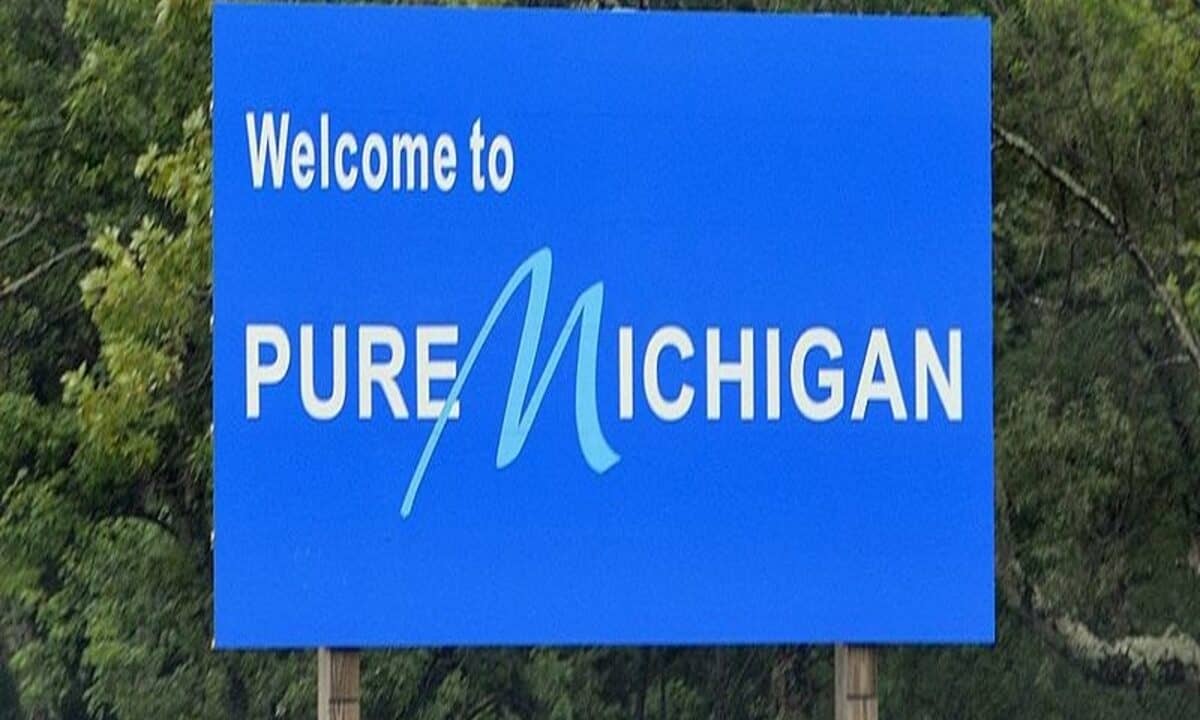 Michigan welcome by Andreas Faessler is licensed under CC BY-SA 4.0
Michigan welcome by Andreas Faessler is licensed under CC BY-SA 4.0
Plastic bag bans have long remained a policy objective for progressive legislators across the country. While the motives behind such objectives cannot be faulted, plastic bag bans have historically had a myriad of unintended consequences that have undermined struggling families and small retailers alike. Despite this, state legislators in Lansing have introduced two sister bills – HB 4359 and SB 228 – that would repeal a preemption preventing “local ordinances regulating the use, disposition, or sale of, prohibiting or restricting, or imposing any fee, charge, or tax on certain containers”. Such a repeal would open the floodgates for local-level taxes and bans of plastic packaging.
It is no secret that many Michiganders are struggling to put food on their tables as a consequence of existing supply chain issues and inflation. According to recent data from the U.S. Bureau of Labor Statistics, grocery prices have increased by 4.3% from August of last year. For further reference, the U.S. Department of Agriculture expects that figure to rise to 5.9% by the end of the year. This increase in grocery prices has been compounded by years of even larger growth in food prices. Food prices have increased by 20.4% between 2018 and 2022. The passage of HB 4359 and SB 228 would only exacerbate this issue and further compromise the food security of hardworking Michigan taxpayers.
As the Wolverine state’s localities begin implementing taxes and burdensome regulations on the sale, use, and disposal of plastic bags, Michigan families and small businesses will incur the burden of rising prices. Rural retailers across the state have already warned that local bans on plastic bags would force them to switch to containers that cost as much as 50 times more to acquire. These adverse outcomes would ultimately undermine state-level priorities related to economic prosperity, the business climate, and statewide waste and recycling strategies.
Moreover, such regulations, taxes, and ordinances would not be limited to plastic bags. The passage of such legislation would provide localities with the broad authority to tax and ban a wide variety of products ranging from bags, cups, bottles, lids, sauce cups, and other similar forms of packaging.
Massachusetts’s experience with similar legislation pertaining to plastic product regulation, taxation, and prohibition is instructive. 153 different jurisdictions across Massachusetts have enacted carryout bag ordinances, varying in structure from fees to taxes to bans. Furthermore, 49 jurisdictions have completely banned polystyrene packaging and 19 have completely outlawed plastic bottles. Such draconian regulations will do little to mitigate plastic pollution and will likely result in higher grocery prices for Michigan families.
According to polls conducted by the Glengariff Group in June, legislation which bans products like plastic retail bags, straws, and utensils used by stores and restaurants is opposed by 58.5% of Michiganders.
When all is said and done, HB 4359 and SB 228 would not only do little to alleviate plastic pollution concerns but also raise prices for struggling Michiganders despite overwhelming opposition to such proposals. The verdict on the efficacy of plastic bag bans is clear. Michigan should learn from the mistakes of progressive strongholds like Massachusetts and steer clear of any legislation that would enable progressive legislators to further undermine the welfare of their constituents.

